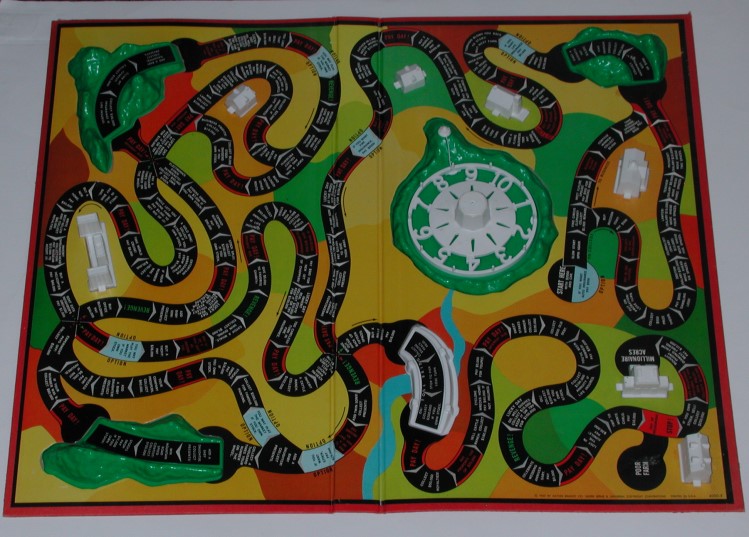

They distinguish the products of one seller from others in the marketplace. Trademarks are words, symbols, and devices that indicate a source of origin for a good or service 7. It also includes any expressive text that is incorporated onto the cards, board, etc., or the rulebook. As applied to games, a tangible medium of expression includes things like illustrations, artwork, and visual appearance of a game. A tangible medium of expression could be, for example, a writing of the work, a drawing on a canvas or a digital screen, a sculpture, etc. CopyrightĬopyright law protects original works of authorship and takes effect as soon as a work is “fixed” in a tangible medium of expression. Design patents are also a way to protect the ornamental aspects of a game, such as the shape and color of playing pieces, so long as they are not functional or do not serve a utility in the game. Some notable games that have been patented include Monopoly 2, Magic: The Gathering 3, Life 4, Battleship 5, and Scrabble 6. A person must apply for a patent with the United States Patent and Trademark Office (“USPTO”), and, if granted, the patent can last for up to 20 years from the date of application. The final two requirements are demanding, as it means that no one can have previously invented the same thing and either patented or made it public, and that the invention is not obvious to an ordinarily-skilled person.Ĭompared to the other categories of IP, the legal standards for obtaining a patent are very strict. it has to be useful) 3) it has to be novel and 4) It has to be nonobvious. The mechanics and components of a game may be patented if it meets four requirements of patentability: 1) It has to be “patentable subject matter” (in the United States these are processes, machines, manufactures, and compositions of matter) 1 2) It has to have utility (i.e. In summary, this means that the patent owner has the right to sue and/or seek judicial orders to compel other people to stop if they are recreating their invention as specified in the patent. PatentsĪ patent gives its owner the legal right to exclude others from making, using, or selling the patented invention. It will not discuss trade secrets, since board games rarely, if ever, concern proprietary information that is vital to the publishers’ or companies’ survival. This article will cover the first three of these with regard to US IP laws only. IP tends to be divided into four main sub-categories: 1) patents 2) copyright 3) trademark and 4) trade secrets.

Inventions, poetry, movies, brand names and logos, and many other “creations of the mind” are captured under IP. IP is a category of property that includes intangible property of the human brain, or in short, one’s ideas. r/legaladvice and r/boardgames) and other various websites frequently confuse the various types of intellectual property protection. Section 1: What legal protections are possible?ĭifferent subreddits (i.e. The goal of this article is to provide game designers with an easy-to-understand guide to (IP) law, which is mostly federally regulated. Nevertheless, to be clear, this article is not providing legal advice. To date, there does not appear to be a simplified online guide, authored by an attorney, which explains intellectual property law as it relates to board games. This is where having a basic understanding of Intellectual Property (IP) law is helpful.

With this kind of development process, the question arises: “What prevents someone from just stealing my game?” Have the community of players and designers tear apart your game so that you gather valuable input to implement and make the end-product as polished as possible. The first instinct when designing a game is to share your design with as many people as possible. One common question from game designers is how can they prevent third parties from stealing their games? This is a legitimate and viable question because a game designer typically introduces their game designs into a public forum to solicit feedback, which may be implemented into the end-product.
#The game of life board layout how to
Various websites, forums, and Reddit threads attempt to answer questions from game designers on what they are allowed to do when designing their games as well as how to protect certain aspects of their games. The laws involved in protecting board games are complicated. Join VA-barred Attorney Thuan Tran as he guides you through the intricacies of intellectual property law as it pertains to board game design.


 0 kommentar(er)
0 kommentar(er)
